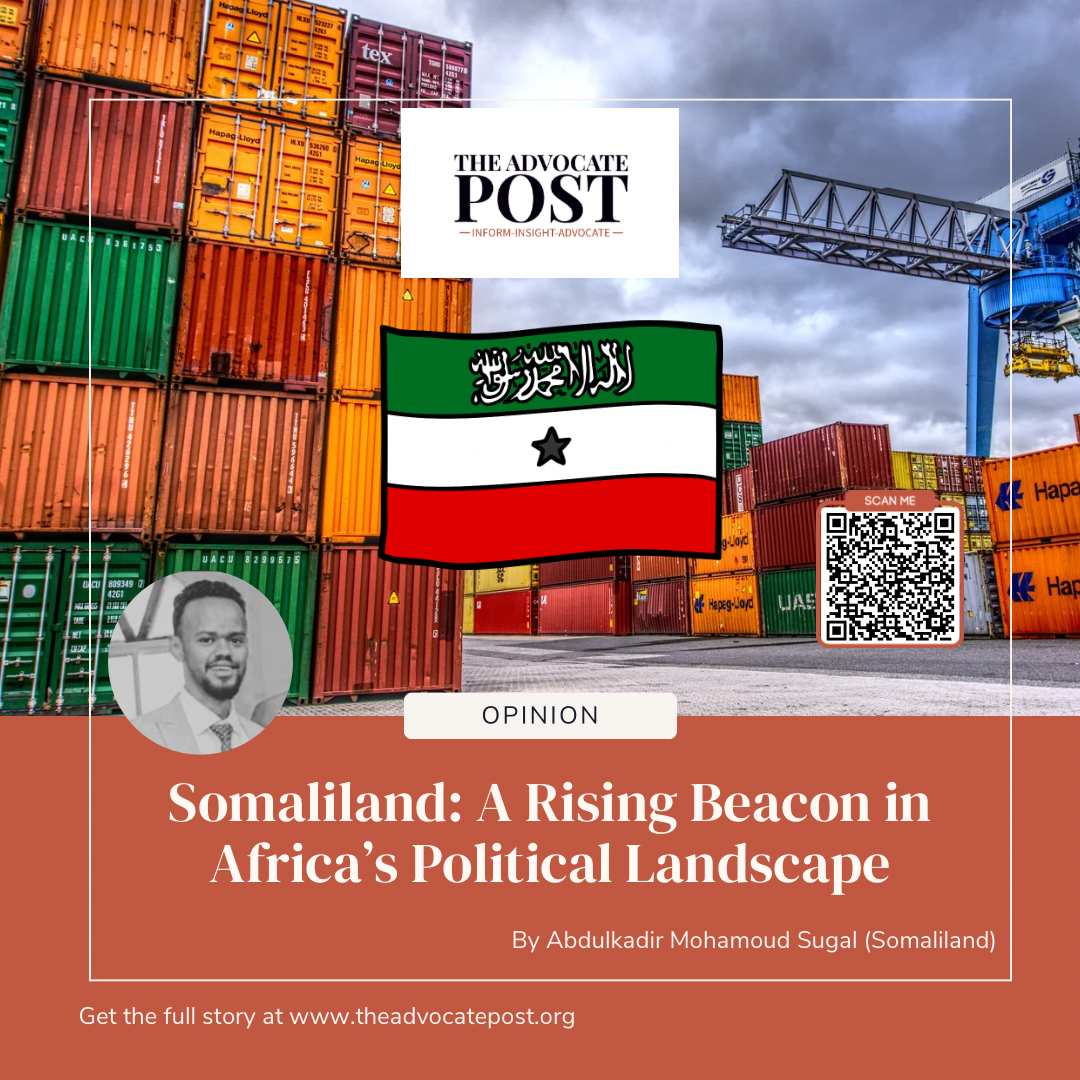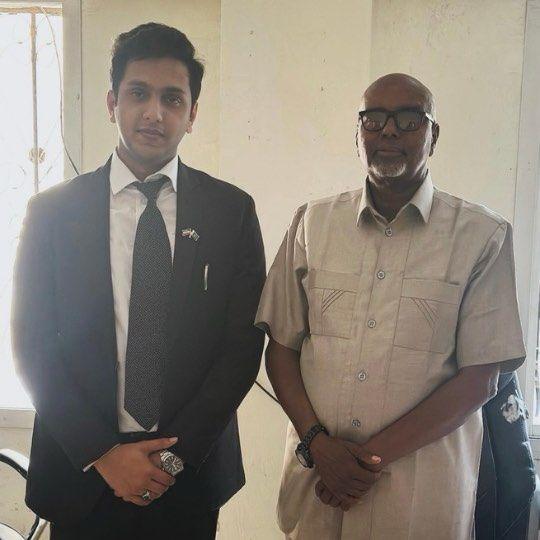By Abdulkadir Mohamoud Sugal (Somaliland)
Somaliland, a self-declared republic in the Horn of Africa, is a testament to resilience, self-reliance, and political innovation in Africa. Since declaring independence from Somalia in 1991, Somaliland has built a functioning democracy, maintained peace, and established governance structures that rival those of recognized states. Despite its lack of international recognition, Somaliland’s achievements set it apart as a unique political entity in Africa. Here are ten ways Somaliland stands out, offering lessons for the continent and the world.
1. A Protectorate, Not a Colony
Unlike most African nations, Somaliland was a British protectorate, not a colony. From 1884 to 1960, the British controlled Somaliland’s defense and foreign affairs, while local leaders retained significant autonomy. This arrangement preserved traditional governance structures and cultural integrity. The protectorate status minimized the disruptive effects of colonialism, allowing Somaliland to maintain a strong national identity and indigenous political systems.
2. A Territory Free of European Births and Burials
Somaliland holds a unique distinction in colonial history: no European was ever born or buried on its soil. This was a deliberate agreement between British authorities and Somaliland’s traditional leaders, symbolizing the Somali people’s commitment to cultural and political sovereignty. This legacy reinforces Somaliland’s enduring pride in its heritage and independence.
3. The First African Country Bombed by Aircraft
In 1921, Somaliland experienced a tragic yet historic moment as the first African country bombed from the air. British forces used aircraft to target the Dervish movement led by Sayyid Mohammed Abdullah Hassan. While a grim episode, it highlights Somaliland’s role in resisting colonial domination and striving for self-determination, themes that resonate in its current political aspirations.
4. A Leader in Somali Unity
In 1960, Somaliland became independent from Britain and voluntarily united with Somalia to form the Somali Republic, a bold experiment in pan-Somali unity. This decision reflected Somaliland’s vision for regional cohesion and leadership in post-colonial Africa. However, the union eventually failed, leading to Somaliland’s decision to reclaim its independence in 1991.
5. A Unique Legislative System: The Guurti
Somaliland’s House of Elders, or Guurti, is a hybrid institution that blends traditional Somali conflict resolution with modern legislative functions. The Guurti mediates disputes, maintains social harmony, and complements the elected House of Representatives. This innovative model underscores Somaliland’s ability to integrate tradition with modern governance, offering a potential template for other African nations grappling with political instability
6. Peaceful Presidential Transitions
The current President of Somaliland held a historic meeting with two former presidents, Dahir Riyale and Muse Bihi, along with four former vice presidents. This event is notable for being the first of its kind in Africa, where a sitting president consults with former leaders, emphasizing the unique political approach of Somaliland. For more details
Somaliland has a history of peaceful power transfers, a rarity in Africa. Since 1991, the nation has seen six presidents assume office through democratic processes, including the peaceful handover of power between opposition parties. This track record reflects Somaliland’s commitment to political stability and respect for democratic norms, distinguishing it from many of its neighbors.
7. Political Pluralism and Competition
Somaliland is one of the few African territories where multiple political parties have governed peacefully. From UDUB to Kulmiyeand now the Waddani Party, Somaliland’s political system has demonstrated maturity and inclusivity. The rotation of power among parties underscores the nation’s robust democratic framework and its citizens’ faith in electoral processes.
8. Economic Self-Reliance
Without Foreign AidDespite its lack of recognition, Somaliland has built a self-sufficient economy. The Berbera Port serves as a vital trade hub, generating significant revenue for the government. Somaliland has also invested in infrastructure, education, and healthcare using domestic resources. This self-reliance highlights the nation’s resilience and resourcefulness, challenging the notion that African countries must depend on foreign aid to succeed.
9. Democracy Without Recognition
Somaliland conducts regular, credible elections that are widely praised by international observers. Citizens actively participate in governance through voting and civic engagement. This commitment to democracy thrives despite the challenges posed by the lack of recognition, proving that legitimacy comes from the will of the people, not external validation.
10. Sovereignty Without International Recognition
Somaliland’s confidence in its sovereignty is unwavering. While it continues to seek formal recognition, the nation has established institutions, maintained peace, and built a strong sense of national identity. Somaliland’s achievements show that recognition is not the sole determinant of success; what matters is the strength of governance and the will of the people.Somaliland’s story offers valuable insights for African nations:- Resilience Over Dependence: Somaliland’s ability to thrive without international aid challenges the dependency narrative often associated with African development.- Traditional Institutions: Integrating traditional governance, like the Guurti, with modern systems can provide stability and legitimacy in diverse societies.- Democracy as a Foundation: Somaliland demonstrates that democracy, even in the absence of recognition, can foster stability and development.
Conclusion: A Model for Africa
Somaliland is a beacon of hope and resilience in Africa. Its unique political system, economic independence, and democratic governance set an example for other nations on the continent. While the lack of recognition poses challenges, Somaliland’s progress proves that self-determination and good governance are achievable without external validation.As Africa grapples with political instability, governance challenges, and development hurdles, Somaliland stands as a testament to what is possible when people prioritize stability, democracy, and self-reliance. Its story is a reminder that the will of the people, coupled with visionary leadership, can transform nations and inspire a continent.





